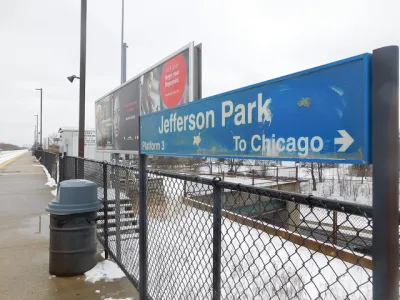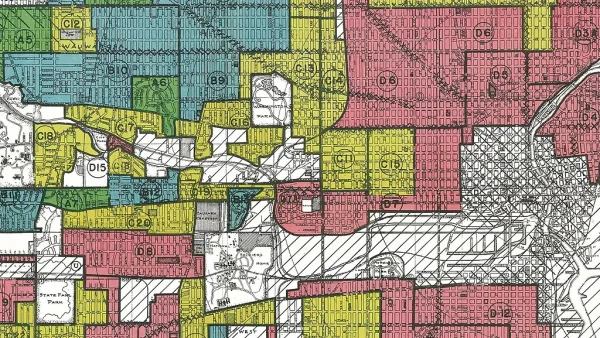Chicago's own city government, in the form of aldermanic prerogatives and privileges, contributes to racial and economic segregation, according to a new study.

Lolly Bowean reports: "As far back as the 1930s, Chicago aldermen used their ability to decide zoning and land use in their wards to create and maintain communities segregated by race and class, according to a new report."
"Some 80 years later, elected officials continue to lean on both their informal and documented powers to block affordable housing in affluent white communities and keep lower-income black and Latino residents confined to certain parts of the city, the report says," adds Bowean.
The report, titled "A City Fragmented," will be released this week by the Chicago Area Fair Housing Alliance.
Bowean digs deeper into the implications of the report, including the possibility that local elected officials violate civil rights laws when using their privilege to block affordable housing. More information about the nature of aldermanic privilege in Chicago is also available in the article. As hinted at above, much of this power is informal and unwritten. Here's how Bowean describes the approvals process that has created the problem:
Typically, if a development in a ward needs a zoning change or permit, and the development is not supported by the alderman of that ward, the proposal is voted down if it ever reaches the full City Council. In some cases, a developer can make a proposal, and the presiding alderman or zoning advisory council will dictate changes — such as how many of the apartments will be condominiums and how many should be set aside for lower-income residents. Those negotiations have to be navigated before the proposal can reach the City Council. The development proposal can also linger in the zoning committee, which is another way it eventually dies from inaction.
That probably sounds familiar to developers and planners living in other cities besides Chicago, and it's possible that the findings of this study could be reproduced or supplemented in other cities.
FULL STORY: New study examines aldermanic prerogative and how it can damage efforts to create affordable housing

Analysis: Cybertruck Fatality Rate Far Exceeds That of Ford Pinto
The Tesla Cybertruck was recalled seven times last year.

National Parks Layoffs Will Cause Communities to Lose Billions
Thousands of essential park workers were laid off this week, just before the busy spring break season.

Retro-silient?: America’s First “Eco-burb,” The Woodlands Turns 50
A master-planned community north of Houston offers lessons on green infrastructure and resilient design, but falls short of its founder’s lofty affordability and walkability goals.

Test News Post 1
This is a summary

Analysis: Cybertruck Fatality Rate Far Exceeds That of Ford Pinto
The Tesla Cybertruck was recalled seven times last year.

Test News Headline 46
Test for the image on the front page.
Urban Design for Planners 1: Software Tools
This six-course series explores essential urban design concepts using open source software and equips planners with the tools they need to participate fully in the urban design process.
Planning for Universal Design
Learn the tools for implementing Universal Design in planning regulations.
EMC Planning Group, Inc.
Planetizen
Planetizen
Mpact (formerly Rail~Volution)
Great Falls Development Authority, Inc.
HUDs Office of Policy Development and Research
NYU Wagner Graduate School of Public Service




























